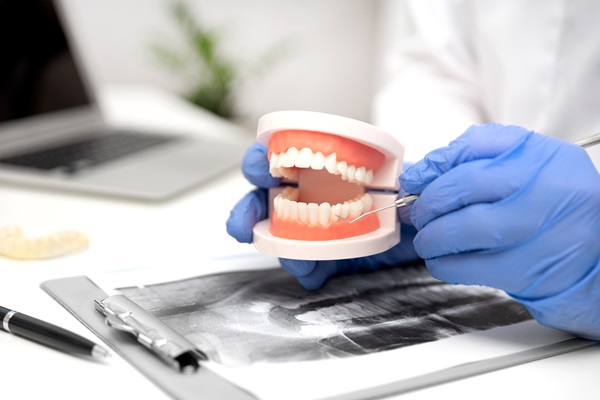How Often Do I Need X-Rays for Routine Dental Care?

Many dental patients have come to expect X-rays as a part of routine dental care. Once or twice a year, a patient may be asked to undergo this simple procedure that provides pictures of the teeth above and below the gum line.
Healthy patients rarely have to think beyond holding still for a moment so that the camera can capture a good image, but others are keenly aware of what the results mean. The results of X-rays can help the dentist detect cavities, prepare the patient for a procedure, and monitor the progression of disease.
What purpose do X-rays serve in routine dental care?
Though most patients do not have to receive X-rays more than once a year as a part of routine dental care, other people have a dental condition that requires this imaging as a part of the treatment planning. Here are three ways in which a dentist may use X-rays to help care for patients.
1. Detecting hidden cavities and teeth
For children and healthy patients, annual X-rays are used to find cavities, watch for signs of decay, and make sure there is enough room for teeth that have not yet erupted. Occasionally, an X-ray at a regular checkup appointment can reveal a more serious problem such as a hidden cavity below the gums, a tumor, or an issue with how a patient’s teeth are erupting from the gums.
2. Preparing patients’ teeth for procedures
Patients who receive implants or braces or who are about to undergo wisdom tooth removal may need X-rays to check on the state of their gums, tissues, or hidden wisdom teeth. Investigating what is going on beneath the gums can give dentists a clearer idea of how to proceed with the patient’s scheduled treatment.
3. Monitoring severe dental disease
Patients who have severe decay or a history of several dental procedures, or those who are at risk for gum disease or other dental issues, may be advised to receive X-rays on a more regular basis. With these results, the dentist can devise treatment plans for individual patients.
How often should patients receive X-rays as a part of routine treatment?
Healthy patients who have no dental conditions aside from the odd cavity can continue to receive X-rays every 12 to 18 months as part of routine dental care appointments. Adolescents may need more frequent X-rays to detect the eruption of wisdom teeth. Adults who have current gum disease, or a history of gum issues, need frequent X-rays at the site of disease.
Children who do not have all of their baby teeth and adults who do not have any teeth may not need X-rays unless there is evidence of dental disease. A dentist is able to further advise in these situations.
Conclusion
Receiving X-rays is an important part of routine dental care. Patients of all ages should remember to attend regular dental visits and participate in receiving X-rays to monitor oral health and prevent serious dental problems in the future.
Are you considering routine dental care in the Santa Clara area? Get more information at https://www.smilesforlifedentalgroup.com.
Check out what others are saying about our dental services on Yelp: Routine Dental Care in Santa Clara, CA.
Recent Posts
Getting a dental cleaning is an essential part of maintaining good oral health. However, it can be difficult to know how often to get one done. Most general dentists recommend dental cleanings twice a year, but there are certain signs to be aware of that can indicate a need for them more frequently. Outlined below are…
Root canals are one of the most common dental procedures dentists perform. However, there are many different types of dentists for you to choose from, making it necessary to understand if your general dentist is able to perform specific dental services, such as a root canal. General dentists are equipped to perform a root canal. In…
Our general dentist recommends brushing with a toothpaste that contains fluoride to give your teeth the highest level of protection possible against tooth decay. Fluoride is a naturally occurring chemical that helps to re-mineralize and strengthen teeth enamel.Fluoride can be found in natural bodies of water, as well as many fruits and vegetables like grapes…
Visits to your general dentist are done routinely, which for most people is twice per year or every six months. Sometimes, your dentist may recommend a deep dental cleaning. What is that? In this article, we will review what a dental cleaning is and when you might be due for one.Just like spring cleaning in…


